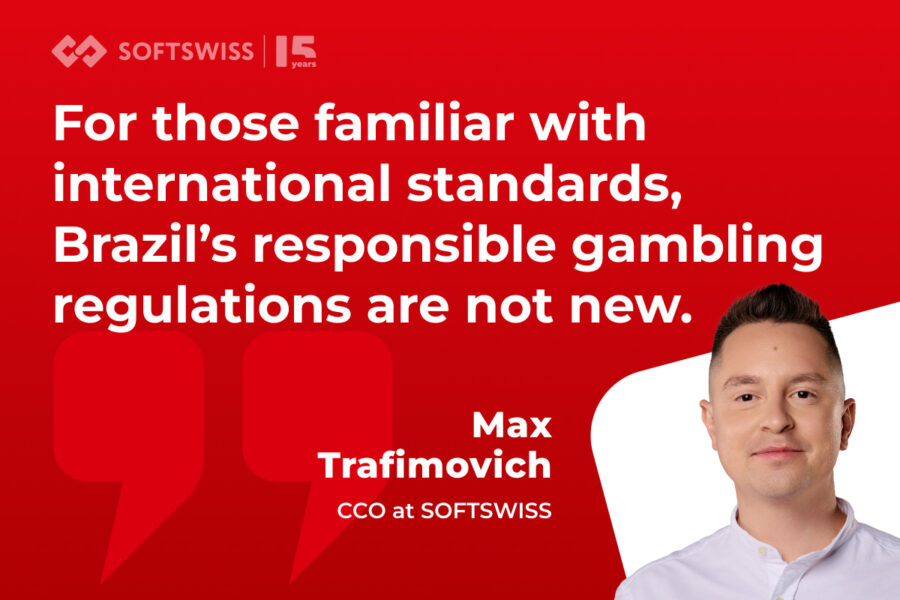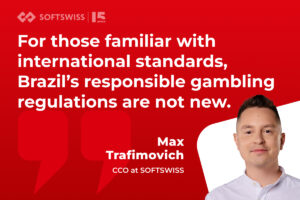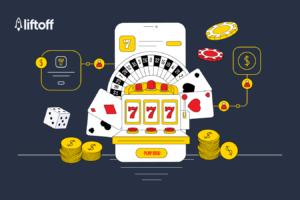SOFTSWISS: Responsible gambling as key to software certification in Brazil

Max Trafimovich, CCO at SOFTSWISS reflects on the rigorous registration process to meet Brazilian regulations and explains why an emphasis on responsible gambling is important for success.
Opinion.- The Brazilian igaming market is a tempting opportunity, but complying with its regulatory landscape requires careful consideration. One of the crucial aspects for SOFTSWISS, as a B2B software provider, is making its technology compliant with local requirements – it’s tough, it’s long, but it’s worth it. Certification does not require just rules and documentation, it also implies a certain approach to business, a responsible approach. So, let’s take it in order.
Certification basis
The certification process in Brazil hinges on a rigorous registration process that aims to protect players and operators from fraud risks. The system mandates using the Brazilian Individual Taxpayer Registry Number (CPF) which helps verify identities to prevent multiple account creation and ensure accurate personal details.
The regulation rules will also likely add stricter KYC checks. For actions like resetting passwords or updating profiles, extra verification might be needed. This could include liveness tests which in turn will require upgrades to many platforms.
All these measures enable the government to thwart underage gambling, protect self-excluded players, track bonus abuse, and monitor tax compliance on winnings.
However, the most striking aspect of the certification process is its focus on responsible gambling standards. Currently, the regulator is working on requirements and tools that must be seamlessly integrated into platforms, to control player gaming activity.
Responsible gambling as global best practice
For those familiar with international standards, Brazil’s responsible gambling regulations are not new. Many countries, such as the UK, Malta, Germany, Greece, South Africa have already implemented similar frameworks.
In those markets, operators must offer age verification, reality checks, self-exclusion options, and player limits to promote safe gambling environments. Additionally, operators are expected to monitor player activity, especially in cases where gambling behaviour indicates potential harm, such as prolonged gaming sessions or suspiciously large deposits.
This means igaming companies already active in regulated markets may have the necessary infrastructure to meet Brazilian regulations.
See also: SOFTSWISS: Unlocking opportunities in Brazil
Integrating responsible gambling practices
Creating a secure gaming environment goes beyond meeting regulatory demands – it’s about safeguarding the well-being of players while promoting long-term sustainability for operators.
At SOFTSWISS, we have a strong track record of promoting responsible gambling practices. Our player protection initiatives include:
- Employee training – We conduct comprehensive training, both internal and external, for our employees so they effectively interact with players. For example, recent Betknowmore Global and RGF Malta courses emphasised social responsibility, effective communication, and encouraging behavioural change.
- Collaborative oversight – We involve multiple departments, like Responsible Gambling, Anti-Money Laundering, VIP, and Player Support teams, working together to monitor player behaviour and identify potential issues.
- Player resources – We provide links to international online services that offer free support and resources to players affected by gambling. This includes suicide prevention assistance and software like BetBlocker, which blocks access to gambling sites. We’re also working to expand our list of organisations that help with gambling addiction.
Besides, we are developing a proprietary Responsible Gaming Risk Scoring Tool that will help make our anti-fraud activity more efficient. This solution uses Machine Learning algorithms to identify potential problems in real-time. This will allow our Responsible gaming specialists to intervene proactively to prevent gaming issues.
Learning from Brazil’s regulatory approach
Brazil’s move toward local regulation comes at a time when the igaming industry is becoming more diligent about player protection. The rapid market development has led to the necessity of the adoption of responsible gambling measures.
Countries now moving toward local regulation, like Brazil, have the benefit of learning from the experiences of more mature markets. At the same time, countries exploring igaming market regulation can gather insights by witnessing Brazil’s ongoing regulatory developments.
By mirroring the lead of international standards and adopting best practices, Brazil is setting a high bar for igaming regulation in Latin America. Companies willing to meet these technical and ethical requirements will not only thrive in the region but also contribute to the long-term health and legitimacy of the global igaming industry. That’s why SOFTSWISS is set to certify its Casino Platform and Sportsbook solutions aiming to become the first certified software provider in Brazil.











